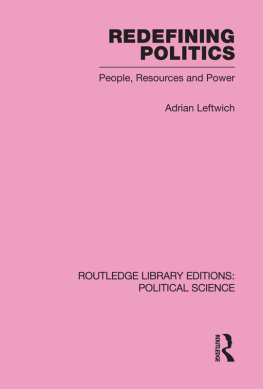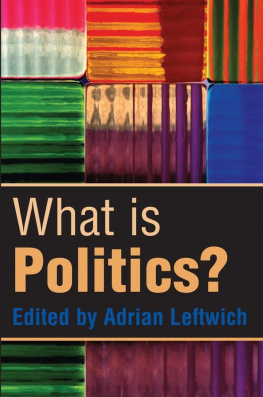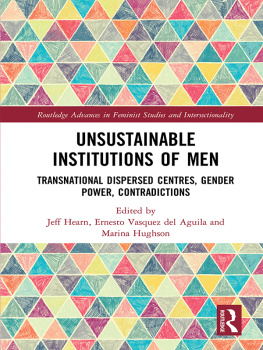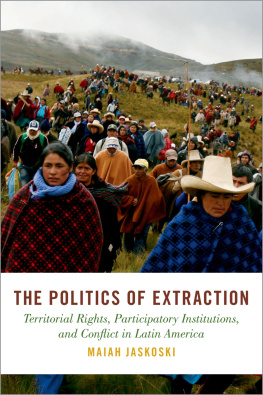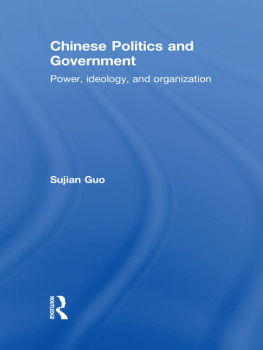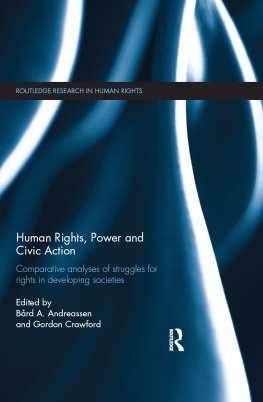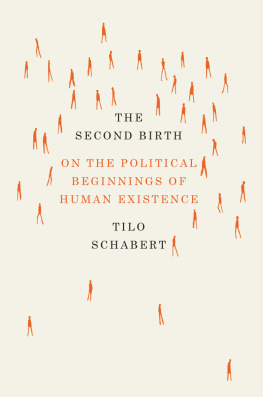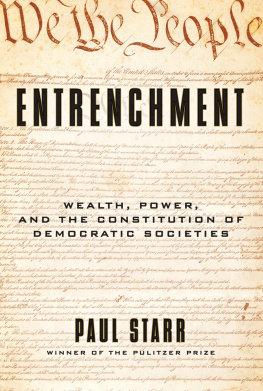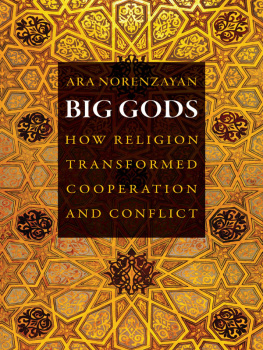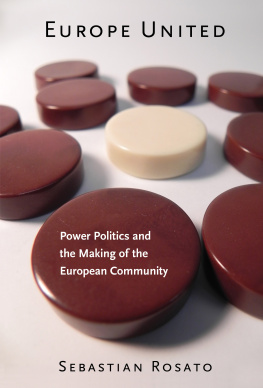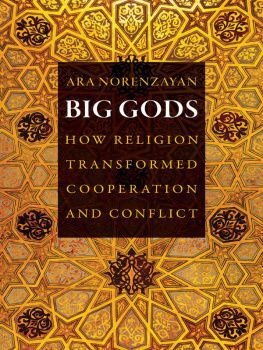ROUTLEDGE LIBRARY EDITIONS:
POLITICAL SCIENCE
REDEFINING POLITICS
REDEFINING POLITICS
People, Resources and Power
By
ADRIAN LEFTWICH
Volume 45
First published 1983
This edition first published in 2010
by Routledge
2 Park Square, Milton Park, Abingdon, Oxon, OX14 4RN
Simultaneously published in the USA and Canada
by Routledge
270 Madison Avenue, New York, NY 10016
Routledge is an imprint of the Taylor & Francis Group, an informa business
1983 Adrian Leftwich
All rights reserved. No part of this book may be reprinted or reproduced or utilised in any form or by any electronic, mechanical, or other means, now known or hereafter invented, including photocopying and recording, or in any information storage or retrieval system, without permission in writing from the publishers.
British Library Cataloguing in Publication Data
A catalogue record for this book is available from the British Library
ISBN 10: 0-415-49111-8 (Set)
ISBN 13: 978-0-415-49111-2 (Set)
ISBN 10: 0-415-55586-8 (Volume 45)
ISBN 13: 978-0-415-55586-9 (Volume 45)
Publishers Note
The publisher has gone to great lengths to ensure the quality of this reprint but points out that some imperfections in the original copies may be apparent.
Disclaimer
The publisher has made every effort to trace copyright holders and would welcome correspondence from those they have been unable to trace.
REDEFINING POLITICS
People, resources and power
ADRIAN LEFTWICH
METHUEN
London and New York
First published in 1983 by
Methuen & Co. Ltd
11 New Fetter Lane, London EC4P 4EE
Published in the USA by
Methuen & Co.
in association with Methuen, Inc.
733 Third Avenue, New York, NY 10017
1983 Adrian Leftwich
All rights reserved. No part of this book may be reprinted or reproduced or utilized in any form or by any electronic, mechanical or other means, now known or hereafter invented, including photocopying and recording, or in any information storage or retrieval system, without permission in writing from the publishers.
British Library Cataloguing in Publication Data
Leftwich, Adrian
Redefining politics.
1. Political sociology
I. Title
306.2 JA76
ISBN 0-416-73590-8
ISBN 0-416-73600-9 Pbk
Library of Congress Cataloging in Publication Data
Leftwich, Adrian.
Redefining politics.
Includes bibliographical references and index.
1. Political science. 2. Political sociology.
3. Power (Social sciences) I. Title.
JA74.L36 1983 306.2 83-11372
ISBN 0-416-73590-8
ISBN 0-416-73600-9 (pbk.)
Acknowledgements
This book was conceived in the summer of 1978, but the bulk of the writing was done between January 1980 and July 1982. It was originally planned that it be written in collaboration with my colleague, David Skidmore. In the event, circumstances did not permit that, but I none the less owe him a considerable debt. All the main ideas, arguments and illustrations contained here were discussed with him, and those discussions helped to shape the structure of the book. He has read and commented on each chapter, sometimes more than once as they went through various drafts. At times he helped greatly by undertaking the laborious task of tracking down material which was difficult to find, and he invariably came up with something useful. He backed the whole enterprise from the start and guided me in relation to Latin America matters especially. The book grew out of our much longer cooperation in the Politics Department at the University of York, going back a decade. Over that period he and I have tried to introduce students to a view of politics which is historically deeper, geographically wider and anthropologically more comparative than the usual undergraduate diet. The fruit of those efforts, first tried this way then that in a variety of courses, is to some extent reflected in this book, and it is therefore right to acknowledge his wider contribution to it.
There is also something particularly rewarding to be able to acknowledge the help I have received from many former students, especially Jeremy Pickard, Andy Flockhart, David Goodhart and Philip Evans, who read parts of the manuscript in various drafts at different stages. They were relentless but always constructive in their criticisms and comments, ticking me off where the argument was weak, the evidence clogged or patchy and for lapses in style. They always gave the right kind of criticism at the right time, and showed a very shrewd sense of what was needed.
I should also like to thank Jannie Mead for encouragement at all stages, for making sure that I kept the central purpose in sight, and my feet on the ground. She provided invaluable help with some of the medical and medically-related material in particular. More generally, by asking difficult questions she always helped to sharpen the argument. Dick Funkhouser and Delsie Gandia provided a quiet place to work at Paschalls Chance, and in the course of many good discussions came up with the original idea for the main title.
Towards the end, when there was a great deal of checking and reading to be done, Dorothy Nott generously gave weeks of her time to go over the manuscript with the greatest of care, improving grammar, clarifying meaning and generally helping to get things done on time. It would have been a much more difficult and painful task without her help, and I am indebted to her for her skill and attention to detail.
A relay of Inter-Library Loan Librarians in the J. B. Morrell Library in the University of York unfailingly got me material with efficiency and patience. One could hope for no better service than that provided in particular by Margaret Lawty, Heather Blackburn, Anita Gowlett and Anthea Bracken.
An anonymous reader for the publisher made some very useful comments on an early synopsis and a few draft chapters, which helped to identify and overcome some of the problems of presenting such a wide range of material. At Methuen, first John Whitehead and then Nancy Marten edged this project along gently but firmly and were always helpful with responses to queries.
Audrey Freeborn typed the manuscript with precision and speed, between dispensing justice on the Bench of the York Magistrates Court.
Without such help this book would never have appeared, though I alone remain responsible for its shortcomings.
Finally, I would like to thank Grant McIntyre for permission to reproduce Table 3.1 from Ivan Reid, Social Class Differences in Britain (London, Grant McIntyre, 2nd edn, 1981); the World Bank for permission to reproduce certain data from World Tables, 1980 (Baltimore, Md, and London, The Johns Hopkins University Press, 1980); and Her Majestys Stationery Office for permission to reproduce Table 7.1 from Report No. 7 of the Royal Commission on the Distribution of Income and Wealth (London, HMSO, 1977).
Adrian Leftwich
August 1982
Map 1
Introduction and Background
It was the best of times, it was the worst of times, it was the age of foolishness, it was the epoch of incredulity, it was the season of Light, it was the season of Darkness, it was the spring of hope, it was the winter of despair, we had everything before us, we had nothing before us, we were all going direct to Heaven, we were all going direct the other way - in short, the period was so far like the present period, that some of its noisiest authorities insisted on its being received, for good or evil, in the superlative degree of comparison only.

